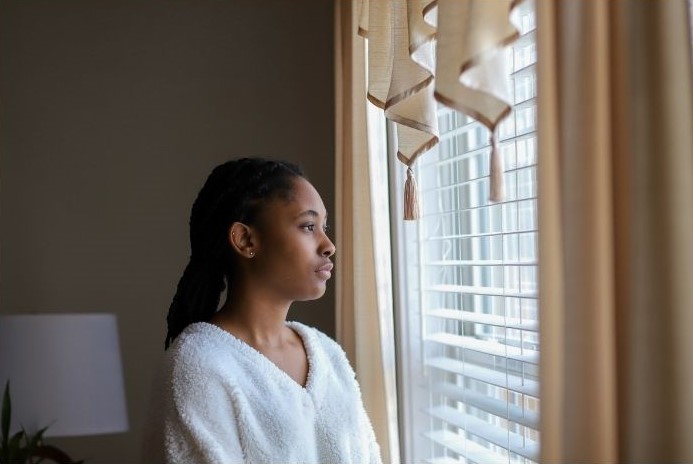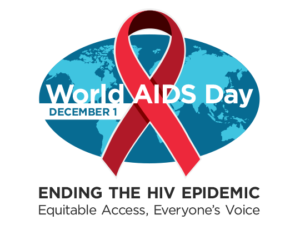Today we will be offering you some insight into the world of mental health: What is going on? How did we get here and what can we do? But first, you need to understand that while not everyone has a diagnosed mental illness, absolutely everyone, I mean all of us have mental health. We all have a brain that needs to be cared for in similar ways that we care for our physical well-being. Our head and our body are connected by much more than just our neck after all.
Mental health illness even manifests itself in some physical ways, such as nausea, headaches, fatigue, and shortness of breath. So, since mental health affects all of us, shouldn’t we be coming up with solutions that are accessible to all of us? Students and mostly teenagers suffer a lot in silence on mental health issues and this has become worse as they have no clue on how to manage these conditions due to the poor information availability and stigma attached to it. Given the dire consequences of these unattended mental health issues, such as the high rate of suicides among teenagers, dysfunctional behaviors among others, some schools now teach these students how to take care of themselves and practice self-care and stress management, and this has literally saved lives.
General Acceptability
Aside from all the practical reasons and technicalities, that physical and mental health are equal and should be treated as such. In fact, they are connected. Take health care for example. Think about Cardiopulmonary resuscitation (CPR). If you were put in a situation where you had to administer CPR, would you know at least a little bit of what to do? Think about it, the answer will be most likely yes because CPR training is offered as first aid in most schools, workplaces, and even online. We even have songs that go with it. But how about mental health care? I know I was trained in CPR in primary school as a Boys Scout and later in Secondary school by the Red Cross but I first heard about mental health as a normal illness and not the stigma of what we call a “Mad Man” in my freshman year in the university.
What if I was trained in primary school on how to manage my mental health or how to respond to a mental health crisis? I will love to see a world where each of us has a toolkit of skills to help a friend, co-worker, family member, or even stranger going through a mental health crisis. And these resources should be especially available in schools because that is where students are struggling the most.
The other concept that I sincerely hope you take with you today is that it is always OK to not be OK, and it is always OK to take a break. It doesn’t have to be a whole day; sometimes that’s not realistic. But it can be a few moments here and there to check in with yourself. Manage your stress levels. Think of life as a race, like a long-distance race. If you sprint in the very beginning you are going to get burnt out. You may even hurt yourself by pushing too hard. But if you pace yourself, if you take it slow, sometimes intentionally, and you push yourself other times, you are sure to be way more successful.
Mental Health and Stigmatization:
“I was going through a lot of personal turmoil. Faced with enormous stress, I suffered an anxiety attack. On some days, I could do no work. On other days, I just wanted to lay in my bed and cry. My doctor asked if I would like to speak with a mental health professional about my stress and anxiety. Mental health? I clammed up and violently shook my head in protest. I felt a profound sense of shame. I felt the weight of stigma. I have a loving, supportive family and incredibly loyal friends, yet I could not entertain the idea of speaking to anyone about my feeling of pain. I felt suffocated by the rigid architecture of our African masculinity. “People have real problems. Get over yourself!” I thought to myself. Like Okonkwo in “Things Fall Apart, we African men neither process nor express our emotions. We deal with our problems”
The above quote was from an African writer on his awakening to his mental health growing up in West Africa, when people used the term “mental,” what came to mind was a madman with dirty, dreadlocked hair, bumbling around, half-naked on the streets. We all know this man. Unfortunately, mental health has been connected to this image and with it the stigma.
“Come down with pneumonia, and your mother will rush you to the nearest hospital for medical treatment. But dare to declare mental illness, and the stigma that follows will be unbelievable from people you less expected. According to the World Health Organization, mental health is about being able to cope with the normal stressors of life; work productively and fruitfully, and be able to make a contribution to your community. Mental health includes our emotional, psychological, and social well-being. Globally, 75 percent of all mental illness cases can be found in low-income countries. Yet most African governments invest less than one percent of their health care budget in mental health. Even worse, we have a severe shortage of psychiatrists in Africa. Nigeria, for example, is estimated to have 200 Psychiatrists in a country of almost 200 million people. In all of Africa, 90 percent of the population lack access to treatment. As a result, we suffer in solitude, silenced by stigma.
We as Africans often respond to mental health with distance, ignorance, guilt, fear, and anger. In a study conducted by Arboleda-Flórez, directly asking, “What is the cause of mental illness?” 34 percent of Nigerian respondents cited drug misuse; 19 percent said divine wrath and the will of God, 12 percent, said witchcraft and spiritual possession. But few cited other known causes of mental illness, like genetics, socio-economic status, war, conflict, or the loss of a loved one. The stigmatization of mental illness often results in the ostracizing and demonizing of sufferers.
Photojournalist Robin Hammond has documented some of these abuses … in Uganda, in Somalia, and here in Nigeria. For some people, the stigma is personal. Imagine receiving a call in the middle of the night informing you that your best friend has been diagnosed with schizophrenia. The speaker said he witnessed some of the friends they grew up with recoil. “Did you hear he has gone mad? He has gone crazy! “Derogatory, demeaning commentary about his condition, words we would never say about someone with cancer or someone with malaria. Somehow, when it comes to mental illness, our ignorance eviscerates all empathy. But he stood by his friend’s side as his community isolated him. This among other issues, unfortunately, fueled by ignorance is behind why people do not want to speak about their mental health and seeking help when needed.
Conclusion
I have seen students struggle and unable to speak to anyone. So deep is our fear of being the madman. All of us, but we Africans especially need to realize that our mental struggles do not detract from our virility, nor does our trauma taint our strength. We need to see mental health as important as physical health. We need to stop suffering in silence. So please, look after each other, look after the kids and teens in your life especially the ones that look like they have it all together. Mental health challenges are not going away, but as a society, we can learn how to manage them by looking after one another. And look after yourself, too.
We must stop stigmatizing disease and traumatizing the afflicted. Talk to your friends. Talk to your loved ones. Talk to health professionals. Be vulnerable. Do so with the confidence that you are not alone. Speak up if you are struggling. Being honest about how we feel does not make us weak; it makes us human. It is time to end the stigma associated with mental illness. So, the next time you hear “mental,” do not just think of the madman. Think of yourself because we all have our mental health to take care of.




